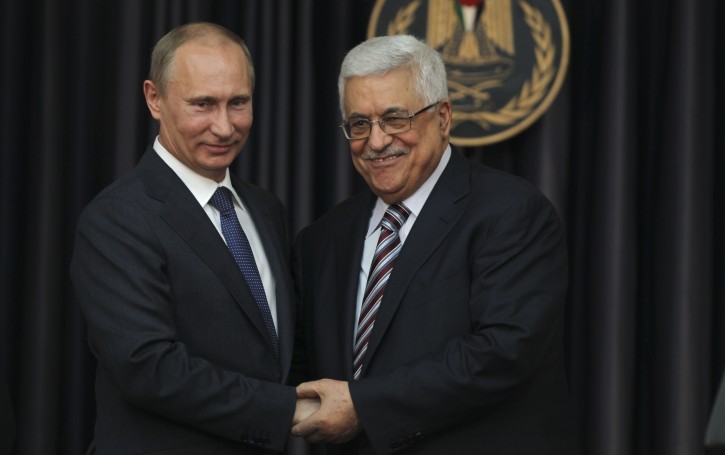(VOVworld) – Russian President Vladimir Putin has concluded his Middle East tour to Israel, the Palestinian territory, and the Kingdom of Jordan, to discuss the situations in Syria and Iran, as well as seek peace solutions for the Israeli-Palestinian conflict. Despite being only a 48 hour-stay in the world’s frying pan, Putin’s trip has conveyed a clear message of an important shift in Russian external policies to consolidate the country’s position in the Middle East and North Africa, as well as to bring peace to this region. Anh Huyen has more…
Putin’s first stop in Israel captured special attention from the media as in addition to bilateral cooperation, Putin was scheduled to hold talks with his Israeli counterpart Benjamin Netanyahu on a number of pressing issues: namely the Middle East process, the Iranian nuclear issues, and the Syrian crisis.
Russia is a close ally of Iran and Syria, who are hostile to Israel. Political analysts assume that Putin’s decision to stop first in Tel Aviv is significant. The first implication is that Moscow seeks support from and will examine attitudes of related parties, especially Israel, on the way Moscow handles the Syrian issue. Tel Aviv and Moscow have long had a close socio-economic and cultural relationship being that more than 1 million people from the former Soviet Union are now living in Israel. However, the political relationship between the two countries has always been tense as Israel, together with some other Arabian countries, lie in an alliance axis against the former Soviet Union. Putin’s decision to visit this hot spot, on the one hand, aims at reiterating the Middle East’s important position in Moscow’s external policies, and on the other hand, targets economic benefits. The two countries’ trade turnover reached nearly 3 billion USD in 2011 and now has the potential to increase even more vigorously. Israel is a powerful nation in terms of technologies which Russia is targeting to implement its program of developing a creative economy. Meanwhile, Israel wants to count on Moscow to help Tel Aviv exploit the newly discovered natural gas reserves in the Mediterranean. Although there remain differences between the two countries on some international issues, the meeting of their leaders was significant for both sides to exchange viewpoints and boost mutual understanding on an executive level. In fact, the meeting results were beyond expectations. Russian-Israeli cooperative ties have been developed strongly in energy, agriculture, phamarcy, and space industries. Russia plans to open a station of its GLONASS satellite navigation system from Israel in 2013, and buy an un-manned aircraft of Israel worth more than 50 million USD.
 |
Russian President Vladimir Putin and the Palestinian Authority President Mahmoud Abbas clasp hands during their joint press conference in the City of Bethlehem, the West Bank. Photo: internet
|
In the city of Bethlehem in the West Bank, discussions between Putin and Palestinian Authority President Mamoud Abbas focused in political solutions for the Iraeli-Palestinian conflict. Russia has always actively participated in activities of the Quarter on the Middle East (which includes Russia, the US, UN, and EU) to speed up the Middle East peace process with an ultimate goal to establish an united, independent Palestinian state with the Eastern Jerusalem being part of its territory. During his visit, Putin highlighted that Russia is ready to recognize an independent Palestinian state and calls on Israel and Palestine to resume their negotiations to settle disputes. However, direct talks between Israel and Palestine have never been easy. After being resumed late last year, talks stalled again over differences between Prime Minister Benjamin Netanyahu and President Mamoud Abbas. Tel Aviv said it’s ready to resume talks, without any prerequiste conditions. Meanwhile, President Abbas said that there will be no talks if Israel continues the construction of its setllements for Jews in the Eastern and Western part of Jerusalem occupied by Israel together with the Gaza Strip. Speaking during his trip, Putin said Russia welcomes President Abbas’s perspective and noted that “any single action before peace solutions are reached will be reacted to”. Putin’s statement is considered neutral as it displeases nobody and shows Russia’s readiness to act as a peace maker in the Middle East.
Putin’s last stop is the Kingdom of Jordan where he held talks with King Abdulla Al Husein to increase bilateral economic and trade cooperation as well as Russia’s construction of a nuclear power plant in Jordan.
The public agreed that Putin’s 2 day trip was a success. In addition to seemingly resolution for the Middle East’s issues, Putin’s presence in Middle East, where its close ally Syria is, reflects Russia’s search for a solution to the Syrian crisis. Putin’s trip also aims at sending a tacit message to US President Obama, who has never visited its close ally Isreal in the Middle East, that Moscow has set up a firm foothold in this strategic region.
Anh Huyen